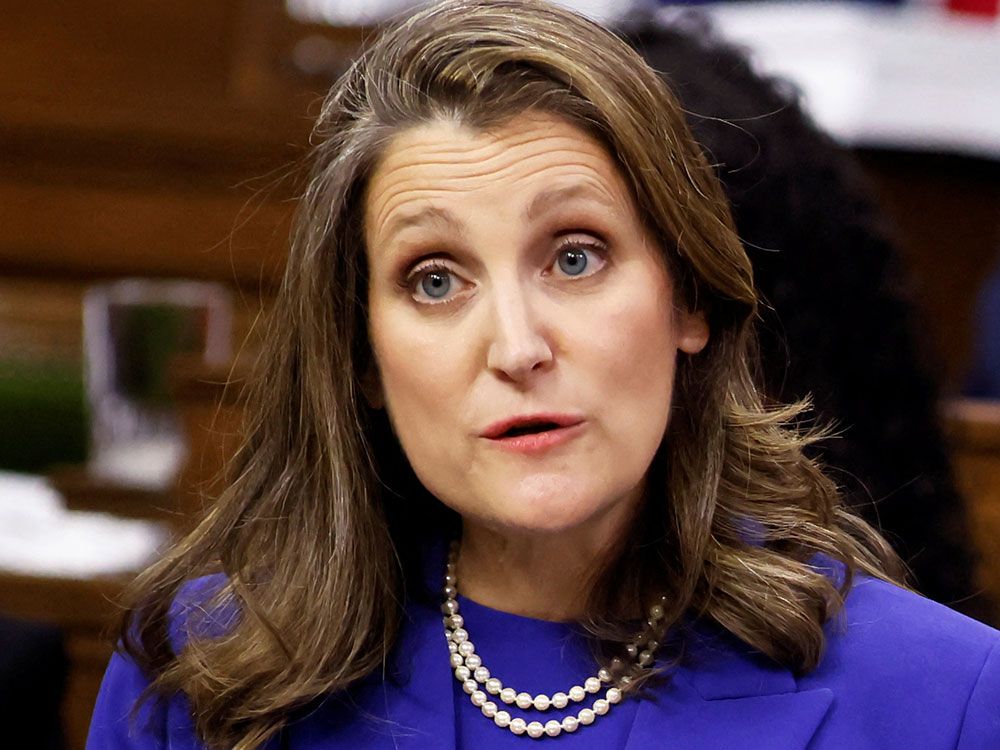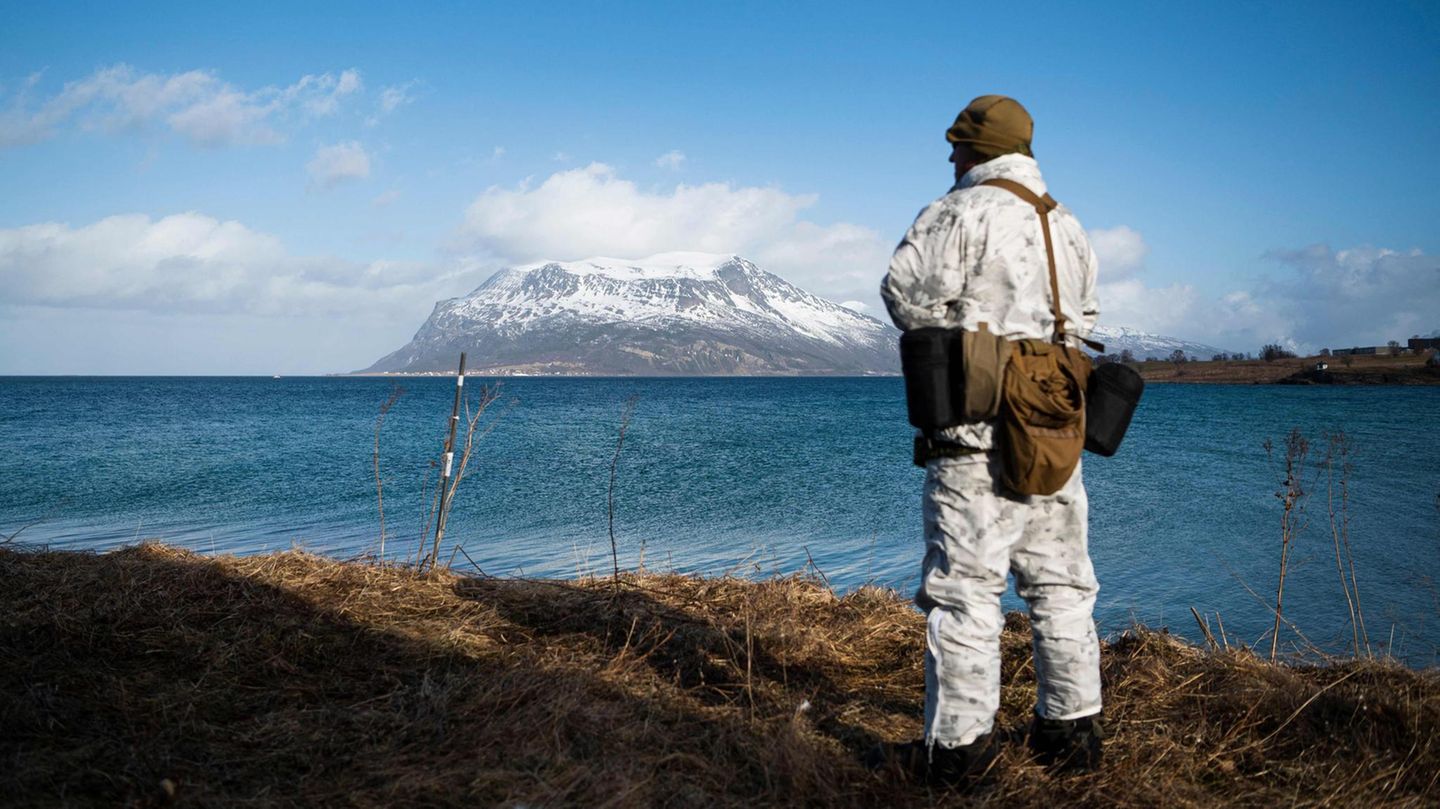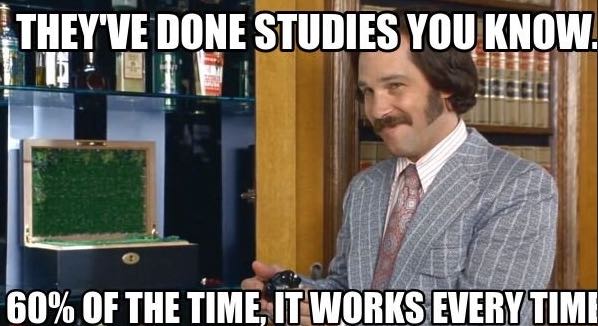I'll believe it when I see it.
You are using an out of date browser. It may not display this or other websites correctly.
You should upgrade or use an alternative browser.
You should upgrade or use an alternative browser.
Justin Trudeau hints at boosting Canada’s military spending
- Thread starter Maxman1
- Start date
- Reaction score
- 9,115
- Points
- 1,360
More like "Someone should really look after that Putin guy, right? Just not me because I don't wanna pay!"
Current Government all about that free lunch
Chrystia has the balls to be a Prime Minister. Justin should resign and perhaps consider developing an e-commerce site selling fancy socks for men.Rob Huebert on Chrystia Freeland's budget speech

Rob Huebert: Did Chrystia Freeland just commit Canada to Russian regime change?
The Deputy Prime Minister says Vladimir Putin must be 'vanquished'nationalpost.com
When does Chrystia kick Justin upstairs?
Brad Sallows
Army.ca Legend
- Reaction score
- 7,073
- Points
- 1,040
A tyrant that needs vanquishing!
Expect continuing passive expressions of this idea.
- Reaction score
- 18,746
- Points
- 1,360
Meh…just words…she’s just as virtuously hollow as he is…Chrystia has the balls to be a Prime Minister. Justin should resign and perhaps consider developing an e-commerce site selling fancy socks for men.
Haggis
Army.ca Veteran
- Reaction score
- 2,682
- Points
- 1,140
Be careful what you wish for.Chrystia has the balls to be a Prime Minister. Justin should resign and perhaps consider developing an e-commerce site selling fancy socks for men.
WLSC
Sr. Member
- Reaction score
- 488
- Points
- 840
Who’s coming from and push the idea of a mission with 50% of women? Stretching everything to make a point.Be careful what you wish for.
Weinie
Army.ca Veteran
- Reaction score
- 3,360
- Points
- 1,140
FTFYMeh…just words…she’s just as virtuously hollow as s/he is…
- Reaction score
- 5,425
- Points
- 1,140
I won't lie, I'd buy the socks... His people dress him well when he isn't in foreign costume.Chrystia has the balls to be a Prime Minister. Justin should resign and perhaps consider developing an e-commerce site selling fancy socks for men.
OldSolduer
Army.ca Relic
- Reaction score
- 12,684
- Points
- 1,140
Sometimes it’s better the devil you know….Be careful what you wish for.
FJAG
Army.ca Legend
- Reaction score
- 11,537
- Points
- 1,160
When Germans start talking about the Arctic, maybe we should listen. A recent article from Stern Magazine (translated by Google)
The original is here:

The original is here:

Russland und die Nato: Warum die Arktis zu "einer Arena des Großmachtwettbewerbs" werden könnte
Die Fronten zwischen Russland und der Nato sind wegen des Ukraine-Krieges vor allem im Osten Europas verhärtet. Doch auch in der Arktis bahnt sich ein schwelender Konflikt zwischen den beiden an.www.stern.de
CONFLICT BETWEEN WEST AND EAST Russia and NATO: Why the Arctic could become "an arena of great power competition".

A US soldier takes part in the international military exercise Cold Response 22 in Sandy Beach, north of Norway
© Jonathan NACKSTRAND / AFP

by Rune Weichert
04/14/2022, 06:09 am6 min reading time
At the moment, the fronts between Russia and NATO are harder than they have been for a long time because of the Ukraine war, especially in Eastern Europe. Another conflict between Russia and the West is smoldering in the icy north – with implications for climate research.
" Russia 's war against Ukraine is a turning point. It's a new normal for European security. And Arctic security, too." That's what NATO Secretary General Jens Stoltenberg said on March 25 during a press conference . The Ukraine war had already shaken security in Europe at this point.
In the freezing Arctic, far from the horrors and horrors of Ukraine, the conflict between Russia and NATO could find a new arena.
NATO is also an Arctic alliance, according to Stoltenberg, four out of five countries bordering the Arctic are NATO states: the USA, Canada, Greenland (administered by Denmark) and Norway. "It is a region of strategic importance for the security of the entire Euro-Atlantic area," said the NATO Secretary General. "And crucial for communications links between North America and Europe. It's also a region of growing strategic competition. In recent years we've seen a significant increase in Russian military activity here."
Russia is expanding its military in the Arctic
Russia has rebuilt Soviet-era Arctic bases, says Stoltenberg . The region is a testing ground for many of the country's new weapon systems. And it is home to Russia's strategic submarine fleet.
"Russia's military build-up is the most serious challenge to the stability and security of the Allies in the far north," Stoltenberg is certain.
The Ukrainian President Zelenskyj also issued a warning to the country during a speech in the Norwegian parliament. "I think you feel new risks on your borders with Russia in the Arctic ," he said at the end of March , stressing that Russia has made a significant upgrade of its Arctic forces in recent years. "They [Russia] have built such a large army up there [in the Arctic] that no common sense can explain it," Zelenskyy said. "Who is she against? And why are you doing this?"
In fact, the geopolitical role of the Arctic is coming back onto the agenda with the war in Ukraine. Because the "widespread military build-up since 2007 increases the potential for a conflict between Russia and NATO-allied states to spill over into the region," analyzes the specialist magazine "Foreign Policy" .
https://www.stern.de/reise/europa/l...se-bluie-east-two-auf-groenland-31479574.html
The Arctic harbors many resources
The Arctic is of great interest to many of the riparian states for a number of reasons. On the one hand there are the natural resources such as gas and oil, which are mainly found in the Russian part of the Arctic. Even if Europe wants to detach itself from fossil fuels from Russia, the continent is still dependent on it.
But it's not just about gas and oil. Minerals, fish stocks, shorter shipping routes between Asia and Europe - all this makes the Arctic interesting for many countries. Climate change and melting ice have uncovered the resources - or will do so in the coming years. Russian President Vladimir Putin could also use Russian resources to further expand his ties with China, which is also eyeing the Arctic region. China, although closer to the equator than the Arctic Circle, has defined itself as a "Near Arctic State" and wants to establish a presence there, Stoltenberg said.
The military build-up at the North Pole poses a danger, writes "Foreign Policy" : "The increasing military activity in the region continues to increase the risk of a misunderstanding or of a conflict spreading to the Arctic from outside, especially in the absence of an official security authority for national actors , through which regional defense issues could be addressed."
Video abspielen
The USA and Canada are arming the "Northern Flank".
Militarily, Russia's extensive defense build-up and alternating military exercises by both Russia and NATO actors have created a potentially unstable region. Against the background of growing tensions between the USA and Russia and the increasing decoupling of the US and Chinese economies, the Arctic is developing into "an arena of great power competition".
The US is already responding. The military and Homeland Security have published reports with titles such as "Regaining Arctic Dominance" , "Arctic Strategy" or "A Blue Arctic" . Exercises in the polar region and reinforcement of the military on site are also intended to set an example. A sign that is also addressed to Russia. The NATO exercise "Cold Response" was held in Norway in March, in which 27 member states and partners took part.
Neighboring Canada also wants to strengthen NATO's "northern flank". Canada's chief of defense, General Wayne Eyre, warns that "much more effort" is needed to strengthen internal security with a strong "focus on the north," as reported by broadcaster France 24 . The Arctic is a region with a particular security policy focus.
Like NATO Secretary General Stoltenberg, Eyre also notes that Russia has reoccupied former Cold War bases over the past decade. "It is not inconceivable that our sovereignty could be called into question." But experts like Michael Byers of the University of British Columbia consider a Russian invasion of Canada to be "completely irrational for Russia." NATO should be more concerned about the military presence in Russia's north-west, such as the nuclear-powered ballistic-missile submarines stationed in Murmansk. However, Russia also has missiles that could reach Canada and the US.
The Arctic Council boycotts Russia
One problem in the Arctic is that there is no proper management system. Nothing resembling the European Union or the UN. There is an Arctic Council that was founded in 1996. The aim of the council is cooperation and coordination between the eight riparian states and indigenous peoples in the region. National, regional and international agreements are implemented. But the work of the Arctic Council is currently on hold.
Seven of the eight members of the Arctic Council condemn Russia's war of aggression. The eighth member is Russia itself. No other member (i.e. Canada, Denmark, Finland, Iceland, Norway, Sweden and the US) wants to travel to Russia for meetings of the Council, which currently holds the presidency, according to a joint statement by the means seven states.
But that shot could backfire. Limited dialogue and transparency on military issues, limited ability to implement governance agreements, and tensions among Arctic states could present an opportunity or motivation for states to resolve conflicts in ways other than through regional cooperation, including military ones, states in a report by the think tank Rand Corp. from 2021. One solution would be to resume dialogue, improve transparency on military issues and "allow for more inclusivity in Arctic-related decisions without challenging the sovereignty of Arctic states."
Arctic climate research on hiatus
The tensions in the Arctic also raise concerns about research, especially climate research, but also about the climate itself. Russia occupies around 53 percent of the Arctic coastline. A boycott by the Arctic partner therefore has a significant impact on research in the region. According to Scientific American magazine, this is suspending the Council's efforts on everything from climate change to oil drilling . This is an important problem because temperatures in the Arctic are rising three times faster than the global average. The issue of forest fires in the Arctic has also been addressed by the Council in the past; the problem of thawing permafrost is just as important.
A prolonged hiatus in the Arctic Council's activities could significantly hamper those efforts, Michael Sfraga, chair of the Polar Institute at the Woodrow Wilson International Center for Scholars and chair of the US Arctic Research Commission, told Scientific American. It could also delay the release of reports summarizing scientific evidence and making recommendations for future action.
And how will NATO react? With an increase in the military presence in the Arctic, as Stoltenberg explained on March 25. More will be needed in the future. "We cannot afford a security vacuum in the far north. It could fuel Russian ambitions that expose NATO and risk misjudgments and misunderstandings." The presence of NATO is not a provocation. Rather, it should avoid conflict and keep the peace. Nevertheless, the tensions in the region are more likely to increase than decrease.
- Reaction score
- 17,253
- Points
- 1,260
Neighboring Canada also wants to strengthen NATO's "northern flank". Canada's chief of defense, General Wayne Eyre, warns that "much more effort" is needed to strengthen internal security with a strong "focus on the north," as reported by broadcaster France 24 . The Arctic is a region with a particular security policy focus.When Germans start talking about the Arctic, maybe we should listen. A recent article from Stern Magazine (translated by Google)
The original is here:

Canada apparently wants to do many things...
Maxman1
Sr. Member
- Reaction score
- 1,099
- Points
- 960
So that would explain the occasional "miss" by Ukraine's LGMs. The Russian dazzlers work sometimes.

- Reaction score
- 6,480
- Points
- 1,310
Wanting to do things and actually putting the treasure and effort into them are completely separate things.Neighboring Canada also wants to strengthen NATO's "northern flank". Canada's chief of defense, General Wayne Eyre, warns that "much more effort" is needed to strengthen internal security with a strong "focus on the north," as reported by broadcaster France 24 . The Arctic is a region with a particular security policy focus.
Canada apparently wants to do many things...
We talk a good game, but won't actually strap the skates on and play.
Weinie
Army.ca Veteran
- Reaction score
- 3,360
- Points
- 1,140
Slightly(massively) amended your commentNeighboring Canada also wants to strengthen NATO's "northern flank". Canada's chief of defense, General Wayne Eyre, warns that "much more effort" is needed to strengthen internal security with a strong "focus on the north," as reported by broadcaster France 24 . The Arctic is a region with a particular security policy focus.
Canada needs to do many things...
McG
Army.ca Legend
- Reaction score
- 2,381
- Points
- 1,160
Canada, take note.

 www.economist.com
www.economist.com

Why Russian radios in Ukraine are getting spammed with heavy metal
Ukrainians are eavesdropping on the invaders and broadcasting on their frequencies
Brad Sallows
Army.ca Legend
- Reaction score
- 7,073
- Points
- 1,040
Buy more Iron Maiden albums?
[Add: if I'd known EW against the Soviet hordes would mean sitting in the box of a heated truck and spinning 30% of a CFOX playlist, I would've transferred into Comm Res in 1983...]
[Add: if I'd known EW against the Soviet hordes would mean sitting in the box of a heated truck and spinning 30% of a CFOX playlist, I would've transferred into Comm Res in 1983...]
- Reaction score
- 6,480
- Points
- 1,310
Without getting too in the weeds, we have both.Get reliable radios with frequency hopping & crypto capabilities compatible with allies.
The issue at hand is user training and integration. The 6 section as a Support funtion and not as an Operations/Planning function means we don't factor C2IS in the OPP, even when developing requirements for different platforms.
I am convinced that no one with a Jimmy badge was consulted when they built the LAV 6 or TAPV, because they are both horrible to do maintenance on as a Sig.
Weinie
Army.ca Veteran
- Reaction score
- 3,360
- Points
- 1,140
FTFY.Without getting too in the weeds, we have both.
The issue at hand is user training and integration. The 6 section as a Support funtion and not as an Operations/Planning function means we don't factor C2IS in the OPP, even when developing requirements for different platforms.
I am convinced that no onewith a Jimmy badgewas consulted when they built the LAV 6 or TAPV, because they are both horrible to do maintenance on.as a Sig.
Colin Parkinson
Army.ca Myth
- Reaction score
- 9,377
- Points
- 1,160
Have you tried working on a modern car lately? It's not just a military issue.I am convinced that no one with a Jimmy badge was consulted when they built the LAV 6 or TAPV, because they are both horrible to do maintenance on as a Sig.
Similar threads
- Replies
- 34
- Views
- 8K
- Replies
- 2
- Views
- 5K
- Article
- Replies
- 545
- Views
- 183K
- Replies
- 18
- Views
- 9K
